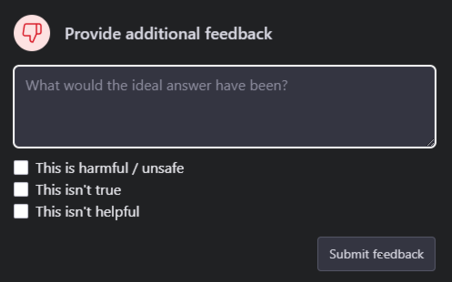What is ChatGPT?
The relevance of ChatGPT right now and why it can only grow.
The relevance of ChatGPT right now and why it can only grow.
ChatGPT (Generative Pre-trained Transformer) is a tool launched in November 2022 by OpenAI, a company founded by Elon Musk (among others) with a focus on artificial intelligence. In its essence, ChatGPT is a chatbot, in the sense that it attempts to have consistent and meaningful conversations, just like a human would.
However, its functionalities go way beyond being a simple conversationalist tool, which is why it has recently gathered a lot of attention.
ChatGPT is built on one of the most advanced language models currently available (GPT 3.5), which is itself based on artificial intelligence, and can be used in natural language processing tasks. From huge amounts of data and complex modelling and computing techniques, ChatGPT is able to adapt and respond on an outstanding amount of situations.
In simple terms, ChatGPT learns from previous experiences how to act and answer in different scenarios. It is then simple to understand that the more experiences (data) are fed into ChatGPT’s algorithms, the more reliable, trustworthy and legitimate it will be when facing all sorts of different prompts. And this is exactly where it stands out from other chatbots – not only does it generate human-like responses and provide massive amounts of knowledge, it is also able to write stories, poems, essays, debug programming code or play games (to name a few examples) with incredible quality, while considering human input for self improvement.

This plethora of functionalities renders ChatGPT as extremely attractive on numerous fields, from IT workers to university students or scientific researchers, since it can boost human productivity to levels never seen before.
However, we do not need to fear a robot takeover just yet – ChatGPT comes with its own limitations. Firstly, it suffers from an issue common to natural processing language models named Hallucination – not the psychological kind, but an issue where the chatbot provides output that appears correct although it is wrong or nonsensical. For the untrained eye, this can clearly lead to serious consequences. Furthermore, this innovative tool still lacks factual accuracy in certain areas, something that can be reduced to a certain extent with model improvements.
On the other hand, it is clear that a chatbot as advanced as ChatGPT can be used with intents short of beneficial – for instance, they can be used in schools by students to cheat and delegate any writing tasks or, for instance, to create malware or phishing emails, something that may have extremely negative consequences, both on personal and professional levels.
Therefore, although tools like ChatGPT have tremendous potential and already aid human activity to a great extent, their limitations and downsides are extremely significant – thus, the inclusion of tools like these in our daily lives should be gradual, controlled and highly supervised.
Got any suggestion, recommendation or idea that you would like to share with us? Feel free!
| Cookie | Duration | Description |
|---|---|---|
| cookielawinfo-checkbox-analytics | 11 months | This cookie is set by GDPR Cookie Consent plugin. The cookie is used to store the user consent for the cookies in the category "Analytics". |
| cookielawinfo-checkbox-functional | 11 months | The cookie is set by GDPR cookie consent to record the user consent for the cookies in the category "Functional". |
| cookielawinfo-checkbox-necessary | 11 months | This cookie is set by GDPR Cookie Consent plugin. The cookies is used to store the user consent for the cookies in the category "Necessary". |
| cookielawinfo-checkbox-others | 11 months | This cookie is set by GDPR Cookie Consent plugin. The cookie is used to store the user consent for the cookies in the category "Other. |
| cookielawinfo-checkbox-performance | 11 months | This cookie is set by GDPR Cookie Consent plugin. The cookie is used to store the user consent for the cookies in the category "Performance". |
| viewed_cookie_policy | 11 months | The cookie is set by the GDPR Cookie Consent plugin and is used to store whether or not user has consented to the use of cookies. It does not store any personal data. |